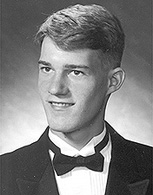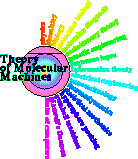

On the 3rd of January of this year I wrote: "I have come to find the difficulties of science. Science is not a field that can be rushed, or hurried, or quickened, for the answers are always elusive, always hidden, never obvious. Yet is that not what makes science so exciting, so intriguing, so stimulating-the element of discovery: the ability to reveal what has never before been discovered by any human being?"
I wrote this in the midst of frustration-frustrated by science. I was tired of working long hours; I was tired of working on non-school days; I was tired of failing. But I could not stop. I was driving by the personality of Dr. Watanabe; I was driven by the element of discovery; I was driven by science. What was frustrating me was driving me. Science is paradoxical: it creates, but it also destroys; it floods, but it also droughts; it vaccinates, but it also infects. Fascinated by this paradox, I continued to work. Soon Northern blots were no longer blank; soon data were produced. Frustration turned to satisfaction; failures turned to successes.
These are the emotions and the thoughts that you are going to have in the next year. You will truly, for the first time in your life, find out what science has to offer: the excitement, the drudgery; the revelations, the disappointments; sound results, the slaying of a hypothesis. But none of this will happen if you became an intern only to strengthen your high school resume, if you became an intern only to leave school early, if you became an intern only for summer employment, for then your experience will be limited; your perspective distorted. To procure as much out of this internship as you possibly can, you must have a love for science. You must want to work late, and on non-school days; you must want to experiment with the risk of failure; you must not hesitate to ask questions.
The people with whom you will work have dedicated their lives to this field. They are extremely intelligent, some Ph.Ds, some MDs, some both. They are from all over the world, all with an overriding passion for scientific discovery. Because you will be working and associating with these learned people, you must absorb as much as you can from them. Do not, however, limit this only to science. From this internship acquire appreciation for the culture and language of another country; from this internship acquire reverence for the many scientists who are trying so hard to fight cancer and AIDS, who are sacrificing their lives for the betterment of society; from this internship acquire direction and wisdom for the future; from this internship acquire a wealth of knowledge on techniques, assays, and protocols.
Will you have this kind of experience? Will you acquire all of this in a year? I think you will. You will find yourself driven by science, by the element of discovery; you will find yourself wanting to work as much as you can; you will find yourself refusing to stop. Discovery is the impetus for the people working on this base, for the principal investigators, for the laboratory chiefs, for the doctors who have devoted their lives to science, and I think it will be the driving force for you, too.
I wish you the best of luck and hope that you have a wonderful experience!
This speech is reproduced with permission from the author. It also appeared in The NIH Catalyst (vol 5(4) July-August 1997). (sorry, only people at NIH can follow these links!)


Schneider Lab.
origin before: 1997 August 20
updated: 2003 Oct 20
